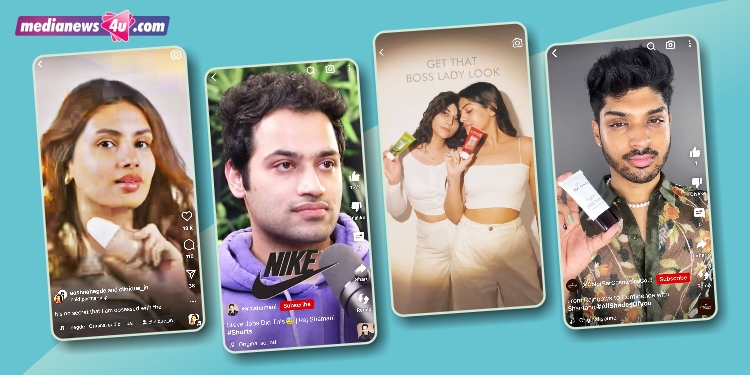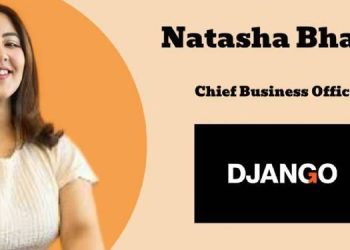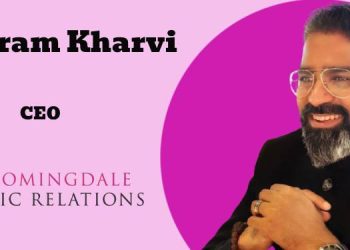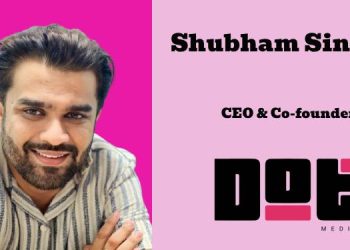Online media is flooded with content creators and ‘influencers’ today. No brand is saying no to influencer marketing, despite the looming questions on effectiveness.
Scrolling through Instagram Reels or YouTube Shorts, one can see that the majority of content is brand-led – not what one followed a creator for.
We asked players: Is original content taking a back seat? Will this lead to influencers losing their influence?
‘Audiences are now craving realness and connection’

Original content creation is evolving to meet the demands of today’s audience, not necessarily taking a back seat. We’ve seen a shift in focus towards more relatable and authentic content. In the past, some influencers may have relied heavily on scripted or overly polished content. However, audiences are now craving realness and connection. They want to see influencers being themselves, sharing their true experiences, and offering genuine opinions. As a result, many influencers are moving away from highly produced content and embracing a more authentic approach.
This is an opportunity for creators to strengthen their influence rather than losing it. When influencers create content that reflects their true selves and values, they are more likely to attract and retain a loyal following.
- Mrunali Dedhia, Vice President, Chtrbox
‘Trust is built over honest conversations and content’

Today’s content has three tiers: non-branded content being the most valuable, brand content with right storytelling, and brand content with sales-led communication. Trust is built over honest conversations and content. The moment any celebrity or influencer starts promoting any product or brand, it’s always a grey area for consumers. But what is interesting to see is, if the brand is going too far from the influencer’s personality and kind of content being generated. In such a case, the influence creates a negative impact by not focusing on the content but only selling the product. Till the time, it’s neatly integrated in the content or storytelling, it will create some impact.”
- Himanshu Arora, Co-Founder, Social Panga
‘Influencers shouldn’t sacrifice their originality’

Original content is what has made an individual into an influencer; we follow our favourite influencer for their unique style, voice and content. While sponsored collaborations with brands have become a significant part of many influencers’ content, original content is not necessarily taking a back seat. The important aspect is that influencers don’t sacrifice their originality and maintain authenticity and ensure that even sponsored content feels genuine and valuable to their followers.
A good blend of original content and brand collaborations can be a successful strategy for influencers to sustain and maintain the influence on the followers. While adapting and reinventing themselves to stay relevant and keep engaging with their audience.
- Manan Kapur, Senior Partner, YAAP
‘Brands should avoid influencers solely focused on branded content’

Original content creation is not taking a back seat, but it has evolved alongside brand-led content. Influencers still prioritise creating unique content, recognising its importance. However, they also collaborate with brands for monetisation. Brands should avoid influencers solely focused on branded content. Research is key to selecting niche-relevant influencers who resonate with the brand’s values. Influencers understand the importance of originality and balance it with brand partnerships, maintaining their influence and authenticity.
Influencers are not losing their influence but adapting to a changing landscape. Their partnership with brands complements their content rather than diminishing it. Smart influencers ensure brand collaborations align with their niche and values. This evolution doesn’t negate original content; instead, influencers creatively integrate brands into their content, maintaining authenticity and influence.
- Sachin Kumar, Founder, Bottle Openers
‘Authenticity shines through in the end’

Original content creation is, indeed, facing some challenges in the evolving landscape of influencer marketing. People are chasing trend-driven content, which leans towards algorithmic predictability rather than artistic rhythm. However, it’s essential to emphasise that genuine content remains invaluable and ultimately prevails. Authenticity shines through in the end. Creators are forced to push content that does not necessarily align with the brand identity, simply due to the bandwagon wave among the masses. It’s true that brand collaborations are currently dominating the narrative but this is not just about memory; it’s about making products relatable by turning them into real-life stories. Original authentic content will always find its right audience. It’s unfortunate that some incredible content from artistes and creators may not reach its audience simply because it’s not trending at the moment. Trends don’t kill originality; smart audiences appreciate authenticity. We need to balance trends and our authentic voices for successful influencer marketing. That’s where the magic happens.
Conviction to their content and influencers that truly in what they say will always come through as genuine and connect with the audience. In retrospect, the influencers working on brand-led promotions are in a sense expressing their own opinions, which makes their influence authentic and significant. This guarantees both visibility and relevancy.
- Anil Gehlot, CEO, Rohido Media
‘A good creator understands that you need both organic and paid content’

I don’t think that original content creation is taking a back seat because many creators have specific IPs (intellectual properties) through which they express themselves authentically. People keep coming back for more because it’s relatable and highly shareable. Therefore, they hold onto their brand value, primarily centred around their IP. Occasionally, they may experiment, but the core remains their IP. A good content creator understands that to boost page engagement, you need both organic and paid content. Not everything can be paid for. Therefore, a skilled content creator blends various types of content – some informative, some organic, and some related to current events. Influencers typically plan their content this way. Certainly, with the rise of influencer marketing, there’s an increase in paid partnerships and sponsored content. However, talented creators always strike a balance and plan their content calendars to include a healthy mix of organic and paid content.
Influencers don’t necessarily lose their influence over time because they are known for their expertise in specific categories and these categories tend to remain authentic, unless influencers engage in excessive cross-promotion. Especially for influencers who have been in the industry for a long time, they understand the value they bring when endorsing a particular brand or service. Therefore, their influence remains authentic. Nowadays, we do have a lot of guidelines and rules in place, making the whole influencer experience very transparent for consumers. People can easily see if an influencer is being paid to promote something. However, in terms of brand awareness and reach, I believe it’s still a very organic and authentic process.
- Ramya Ramachandran, Founder & CEO, Whoppl
‘Entertainment content that seamlessly transitions into commerce is gaining prominence’

In our current era, the influence of social media content created by individuals in the creator economy is reshaping the boundaries between entertainment, brand-sponsored material and sales. This transformation is especially notable when considering the developments in countries like China and the United States, and the direction India is heading, primarily in the realm of social commerce. Entertainment content that seamlessly transitions into commerce is gaining prominence, redefining our understanding of content creation. Unlike 20 or 30 years ago when teleshopping networks were prevalent, today’s e-commerce platforms host live sales events with more engaging and personalised content. While there are established frameworks for creating content aimed at product sales, it’s essential to break away from traditional perspectives when evaluating content.
The dimensions of the word influence are getting redefined on a daily basis. When someone is able to influence a sale by being a brand ambassador or endorsing a product, it on a level adds to the influence. They are driving sales and becoming business professionals. It is a matter of perspective. At the end of the day, these influencers who are coming in for the income, they are looking at generating revenue out of it. The industry is evolving and social commerce is the next step.
- Devdatta Potnis, CEO, Animeta
‘Influencers primarily churning out branded content are on trajectory toward obscurity’

The question of whether original content creation is taking a back seat is a pertinent one in the realm of influencer marketing. Smart influencers are acutely aware of this and take measures to maintain a clean timeline. They limit the number of paid campaigns they engage in, typically four to six per month, to avoid alienating their audience. Additionally, they prioritise creating original content that entertains and resonates with their followers. Another strategy employed by savvy influencers is setting a timeline for brand partnerships, and deleting posts after 30 or 40 days once the campaign concludes. However, it’s essential to note that original content never truly takes a back seat. Most influencers understand that neglecting it would diminish audience engagement. The key advice is to strike a balance between sponsored content and genuine creations. On the flip side, a tier of influencers caters primarily to brands, relying on fake accounts or barter deals. They churn out branded content without a commitment to quality, exploiting the current trend for personal gain.
Any influencer primarily churning out branded content at the expense of original content is on a trajectory toward obscurity. Ideally, influencers should maintain authenticity and prioritise their genuine voice, a practice that reputable influencers with actual influence tend to follow. If this current trajectory persists, which, in my opinion, it won’t, these influencers will become unattractive even to brands. In reality, no one appreciates an influencer seamlessly promoting brands A, B, and C within a week. Such behaviour renders them easily avoidable, thereby failing to benefit both the brand and the influencers’ income. The brand invests money, but there’s no discernible impact on consumer engagement or audience loyalty.
- Vaibhav Gupta, Co-Founder and CPO, KlugKlug
Feedback: Editorial@medianews4u.com

















